Getting Into Solo Wargaming – Part One
January 7, 2019 by crew
We've got @evilstu from the community working with us today on what will be the first of a few articles looking at Solo Wargaming, a pastime which is becoming more and more frequent amongst wargamers right now.
We can't wait to get stuck into this with him so follow along and tell us your thoughts on it too in the comments below!
Introduction
Welcome one and all to an article series exploring the idea of solo wargaming. With the increasing prevalence of solo mode gameplay on board games, I thought it might be time to consider solo gaming in more depth. Solo wargaming is, as it sounds, the practice of playing out a wargame with one individual taking command of both (or in some cases, all) sides involved in the contest or engagement.
While the application of these principles to board, card and role-playing games will be touched on in part two, the main focus of the series will be on wargames, as that is the area with which I am most familiar. If anyone reading this series has methodologies by which these principles could be better applied to other gaming mediums please do share your thought with the community. Hopefully, once we have a firm grasp on the basic principles and the ideas in hand we will all be playing with ourselves in no time. So, now that we have tipped our hat to the obvious innuendo, let us commence.
First, we're touching on the default assumptions behind the number of players involved in gaming formats and will then delve into the reasons why solo wargaming may be considered as an option for your games.
The ‘Default Assumption’
As I and many of our more venerable community members will recall, there was a time when every home did not contain a personal computer. In fact, gaming consoles were additionally quite rare until the mid to late 1980s. During these earlier times prior to the mass availability of electronic gaming devices, families and friends would gather around tables and pass the time engaging with one another over a card or board game.
These games were often much less sophisticated than their modern equivalents, but that was what was available back then. The evolutionary path that these games took was guided by the need to entertain multiple individuals simultaneously and keep anywhere from two to even eight or more individuals engaged and involved. That is, the default mechanics and mindset was that board and card games were multiplayer affairs.
Once gaming consoles began to appear, there was competition for limited leisure time from the newer devices. The games available on these consoles were, by and large, single player affairs. While some games did have options for a second player to engage concurrently, most games were for one player, and social interaction was handled by people ‘taking turns’ at controlling the action on the screen.
With the advent of home computers, games were initially text-based adventures or simple games that required the use of the keyboard for controlling input. Again, the focus was on solo play. In time, games developed which allowed multiple players to control the events on the screen. From the early 1990s games could be played via dial-up modem against someone on another PC. By the mid to late ’90s game designers were utilising the internet to allow gamers to go head to head against one another from anywhere in the world.
So nowadays, while online gaming is hugely popular, single-player console and PC games are by no means considered unusual. There is an almost default assumption that a PC or console game is generally a single player affair, although this is perhaps becoming less prevalent as we move forward. Conversely, board and card games are by default considered to be multiplayer endeavours, and any game with a ‘solo’ mode included, or with a solo focus has, until more recently, been noteworthy.
I appreciate that the above is an incredibly broad generalisation, but please do forgive me, dear reader, the idea I am trying to convey is that we generally approach gaming with a preconceived bias as to how the game format should be engaged with. And this, I believe, is in and of itself is worth examining.
Wargames have historically been more aligned with board games. That is, wargames are by default deemed to be multiplayer affairs. So, given that we are all fine with a solo console and PC game, can we allow ourselves permission to remove any unconscious bias which we may have and consider the idea of solo wargaming? Isn’t the idea of using tactile gaming components to play out equivalent games somewhat appealing? After all, when was the last time you had to stop playing a wargame with miniatures because your rules set needed to download a new patch or your board game got shelved temporarily because your graphics card was having a conflict with your new processor? Didn’t think so…
Is Solo Gaming A Replacement For ‘Social’ Gaming?
Am I advocating for solo gaming as a replacement for traditional multiplayer/social gaming? Absolutely not. Please let me be as clear as I possibly can on this one. Social gaming of any sort should be a fun and engaging experience for all involved. The opportunity to swap stories, share anecdotes, jokes and experiences with like-minded individuals should engage and energise the participants. Human beings are social creatures, and there is a wealth of information available on the benefits of social interaction.
Rangers of Shadow Deep and Frostgrave both contain mechanics which permit solo gameplay
I would encourage solo wargaming as an addition to any social gaming in which you may be engaged. If however, for any of the reasons listed in the article below you find yourself in a situation where conventional social gaming is not an option for you then please do consider using the projects system on the On Tabletop website to share your solo campaigns and exploits with the wider community.
Why Might You Consider Solo Gaming As An Option?
The following is a list of a few reasons that I had come up with why you may wish to consider solo gaming as a viable alternative to social gaming. The list is not intended to be complete so if you have any that I have missed please drop a comment below and let the community know your thoughts.
Learning A New Game
This one is the most obvious. The shiny new gaming box has just arrived in the post or hit the shelves at your friendly local gaming store and been promptly procured. You have popped open the box (struggling with the tightly fitting lid…), experienced the new game smell, punched out and sorted the tokens, de-sprued (totally a word now - Editor) the miniatures, admired the print quality on the board and read the rules the whole way through twice over.
You are very keen to bring it along to your usual gaming night on Thursday and impress everyone, but you want to make sure you are able to each them all the rules correctly from the get-go. After all, gaming time is at a premium and you don’t want to spend half of Thursday night educating your contemporaries on all the rules for the game. Playing through a few turns can help add context to written rules set. Playing through a new game completely may additionally assist in identifying any unusual situations or highlighting potential ambiguity in the rules as written.
This will provide an opportunity to discuss these circumstances with your gaming group in advance of commencing the game and reach agreement on how such situations are to be treated – that way nobody will feel hard done by if and when such a situation arises.
Creating Or Playtesting House Rules/Amendments
Are there any rules in your favourite ‘go to’ game that just strike you as silly or ruin the immersion of the game for you? Solo gaming allows you to gloss over or ignore anything that you don’t particularly like in a rule set. Occasionally a game or rules set will be pitched at a level which is less detailed than you may wish for. To use an obvious example, in most combat orientated games, neither side generally runs out of ammunition for firearms or weapons.
Let us suppose that you were considering introducing a rule to your preferred wargaming system of choice that shots fired from heavy ordinance weapons would have a limited quantity. Before proposing your suggested rules amendment to your wider gaming circle, you may wish to playtest a few games or scenarios involving such a rules change to see if this adversely impacts on one particular side.
Asymmetric Games
Many games, wargames especially, are based on the idea that both sides are approximately equivalent – the aspirational and unachievable notion of ‘game balance’. In an asymmetric game, one force is at a substantial disadvantage when compared to the other – be it a numerical, technological or situational disadvantage. Engaging in solo play would allow you to explore the idea of contests between asymmetrical forces, just as occurred throughout history, and let you see whether the underdog can achieve an unexpected victory or meet certain predetermined scenario conditions without the need to have one player controlling the ‘always gonna lose’ force.
Narrative Games Or Role-Playing Scripts
Imagine if you will that you are a games master and you and your group of players are playing through a heroic fantasy campaign. Your player’s characters are assisting the local lord and his army in defending his lands against an invading force, and the players find themselves billeted at a small farming community while the bulk of the army commences a slow and dangerous river crossing a few days before the climactic battle.
Solo wargaming allows the focus to shift between small-scale heroic actions and the wider campaign as you choose
Whilst billeted, the players learn from the local farmers that in addition to the normal hardships experienced due to a time of uncertainty and war, that they are additionally having to deal with nearby bandits stealing their cattle. The players, being goodly sorts, investigate and deal with the bandits, returning the missing cattle to the farming community. In doing so, however, the players locate a hidden and previously unknown bridge at a narrow point in the river that the bandits had been making use of to evade capture. Reporting the bridge to the local Lord allows the Lord to dispatch some of his forces to cross the river more efficiently. This could be heavy cavalry, engines of war, a vanguard deployment to harass the enemies supply lines or similar force that the Lord would not have otherwise had had an opportunity to deploy were it not for the players discovering the bridge.
Now, while the Lord and player characters will spend the next session heroically resolving the conflict on the left flank of the army, the events on the right flank will happen ‘off camera’ as it were. It would be a simple affair to simply invent an outcome, but the events on the right flank might be conveyed in greater detail if you were to undertake a simulated play through on the tabletop and record events. Did the heavy cavalry arrive in time to support their comrades? Was their charge decisive or ineffectual? Did the war engines contribute to the outcome of the battle? Did the vanguard force capture or destroy any supply wagons? What proportion of the enemy’s effective fighting force was tied up in trying to capture them or protect lines of supply? Writers of fiction could employ a similar methodology to help populate the background to any conflicts occurring in their written works.
An Issue Of Time
Again, this one is reasonably self-evident. Gone are the days where people could be assumed to work a nine-to-five job five days a week. More of us are working shift work or long and unusual hours. This may mean that your gaming circle cannot meet up as regularly as they have previously been able to. And outside of work commitments, everybody has other things that they need to get done, be it social, sporting, study, family or parenting commitments, or the mundane but necessary grocery shopping and payment of bills. Free time is at a premium for all of us, and regrettably, the few hours of free time that you have may not necessarily correlate with that of your gaming colleagues. Solo gaming may provide an outlet which will permit you to get some gaming in such circumstances.
Availability Of Gamers & Capacity
Again, regrettably not all of us are fortunate enough to have access to a local gaming store or even a local gaming community. It may be that there simply are no gamers who live in your local area. This may be further compounded if the games you wish to play are of the less mainstream variety.
Social gaming, by its nature, generally requires people to be co-located in the same geographical location. If you live in an area where public transport options are less than adequate or find yourself without your primary means of transport unexpectedly, then social gaming might be less of a realistic proposition. Or, to use an extreme example, let us suppose you have just moved to a new country and are not presently familiar enough with the local language to be able to confidently engage in a social gaming situation.
A less happy example which I would not wish on anyone but one worth considering, people may be unable to travel due to injuries or issues with regard to health. In such circumstance, the intellectual engagement provided by solo gaming might be a welcome diversion and help to take the focus off present circumstances while recovering.
Your Niche Gaming Loves...
“Yeah, I really like the idea of a weird world war setting with the Cthulhu mythos and mad scientists animating the dead to fight for them through alchemical means, while elite Commando teams explore ancient ruins for lost lore, but I also want it to have more of a steampunk feel and be set in the late 1890s. Also, the allied powers should have a moon base to act as the first line of defence against the Axis powers stationed on Mars and their fleets of interplanetary star zeppelins. Plus I want the allied forces to have access to kangaroo cavalry...”
OK, this is an extreme example I appreciate, but If this all sounds like great fun to you, or if you have similar ideas for a niche game you want to play then chances are there are not going to be a high number of people in your local vicinity who are as enthusiastic as you are to develop and play such a game. Not to worry, solo wargaming might be an appropriate avenue to explore such themes or even some of the less commercially successful (but not necessarily less well rounded or well designed) games on the market.
There have been a wealth of great rules sets becoming available due to crowdfunding platforms in recent years, surely as gamers we owe it to these hard-working women and men to share in the gaming journey that they have invested so much time and effort in creating?
Playing Older Editions
I’ll own up here, I’m personally still not quite ready to move on from Warhammer Fantasy. Truth be told, I actually prefer 6th and 7th edition to the 8th and final edition. This isn’t me being against or in any way critical of Age of Sigmar, I actually quite like the rules set and the focus on narrative play, but I am personally not dome with exploring all the opportunities that the Old World presents. When the events of the End Times occurred, a friend of mine and I made a conscious decision to keep playing Warhammer Fantasy rather than shelving the rules system.
Retired games now no longer need to be relegated to the top shelf in the fabled 'Cupboard of gaming history'
Had it been the case that we had swapped over to Age of Sigmar, or 9th age or Kings of War or another style of game entirely I would have in all likelihood developed some in-house rules for solo play and continued with Warhammer Fantasy on my own. If a games system that you have invested your time and finances into is no longer supported, and the gaming community around you moves on to other gaming experiences, you should feel free to continue to engage with that games system until such time as you are finished with it. And, as an added bonus, all the supplements, rulebooks and miniatures are likely to be cheaply available second hand (at least in the short term…).
Exploring Games In Greater Detail
Solo wargaming does have one large advantage over traditional social wargaming. You can take things at your own pace and drill into as much detail as you wish. While taking fifteen minutes in a social game to carefully consider and weigh up all tactical options would be generally considered poor form in a social game, in a solo game you have as much time as you wish to invest to devote to such analysis.
Further, you can add in extra elements to increase the degree of intricacy and realism in your games. Most tabletop wargames ignore or give limited consideration to issues such as resupply or unit attrition, let alone touching on political implications of lengthy campaigns and support for key Generals, the impact on the economies of the nations involved in the conflict and so forth. Solo gaming provides the freedom for you to incorporate rules for any such elements you desire.
Adding In Your Own Homebrew Units
Non-standard or additional units in games. Solo wargames provide you with the flexibility to add any additional unit type to the game that you may feel would make an interesting inclusion. The army list which you are looking at does not accommodate light cavalry or skirmishing mixed weapons unit? A few minutes reworking and modifying an existing unity and you can be up and running.
Admittedly if you have a regular gaming group with whom you are familiar then they may agree to the incorporation of non-standard or unofficial unit types, but solo gaming removes the need for negotiation. Conversely, it also removes the opportunity for a peer review of the unit and potentially valuable feedback on how to improve the realism of its gaming statistics so there are pros and cons here.
...Getting More Games In!
This one is simple. Attention all gameoholics - solo gaming allows you to get in additional games on top of the social games you would ordinarily play. You are really excited by the shiny new rules set and had great fun at the club playing with it until early morning last Thursday night, and now can’t bear to think that you will need to wait another month before the next gaming night. Solo gaming might give you the required ‘gaming hit’ to carry you through to the next club night.
Similarly, you might be trying to refine an army list for an upcoming local tournament. All of your usual opponents are madly waging ‘war against the grey’ trying to get their armies primed and painted before the tournament commences. Solo gaming may provide an opportunity to go through some varied scenarios to help identify any weaknesses in the list that need to be considered and have counters prepared for prior to the tournament.
Using Alternate Miniatures
We are fortunate to be gamers at a time when there are a wealth of manufacturers producing a vast array of diverse miniatures. For those of us who play tabletop games with miniatures, as opposed to the collectors or painters amongst our ranks, it may be difficult to identify an opportunity to utilise boutique miniatures on the tabletop.
Solo wargaming permits use of miniatures from alternative ranges that you have accumulated but never quite worked out what to do with
When playing socially, your opponent can, justifiably, expect that the miniatures that they are looking at across the table will be readily identifiable as approximate representations of their in-game representations. “So the three turtle miniatures are your chariots then?” “No, the dwarves riding the bears are my chariots, the turtles are my light cavalry.” So that means the gentlemen wearing plinth hats, carrying umbrellas and riding on giant dodos are your heavy cavalry?” “No, that’s my air support”...
While I am certain dear reader that you would do a much better job of informing your opponent of what your proxy miniatures represent that the previous example, in solo gaming you are free to incorporate any representative miniatures you wish as you yourself are unlikely to get confused as to what they represent.
Playing Large/Long Games
A standard large game of Warhammer Fantasy was deemed to be at the 2,000 point mark. Very occasionally we will have a game day where we will pay a 5,000 point game of Warhammer Fantasy. Setup and deployment can take two hours to complete, with the game itself usually running for another five or six hours before we call the game (ordinarily somewhere around turn four rather than the six full turns that the rules set calls for). Needless to say, this level of time investment is not feasible often. But let us extend this a little further. Let us assume you wished to play a 10,000 point game. Or a game of Apocalypse. Perhaps you have just procured a Titan and want to take over the spare room, dining table or garage floor for a large scale battle.
With solo wargaming, you can field armies as large as your collection permits
Unless you are fortunate enough to be cohabitating with your gaming adversary odds are that, space limitations aside, there will not be sufficient time in which your opponent will be present to continue the game. If we are generous and assume that your opponent is available for one full day each weekend (assume ten hours) with no other commitments and no chance of scheduling conflict then it may take three gaming days to work through the game to satisfactory completion. This would mean that the gaming space would need to be maintained in an undisturbed manner for the two intervening weeks between the initial, mid and final gaming sessions.
Any non-gamers that you are cohabitating with are likely to lose their sense of humour with regard to the endeavour and wish to reclaim said gaming space long before the game can be completed. If, however, you were approaching such a game as a solo gamer, you would be free to devote any spare time to the progressing of the game as you saw fit. It is entirely possible you could complete the bulk of the game on a weekend, with the final acts being played out after work in a few evenings. The two-week game could therefore potentially be compressed chronologically into a little over half a week, or a long weekend.
Slow Growing Armies
One form of PC game I always really enjoyed was the turn-based strategy games where your surviving forces from one battle would be reinforced and form the core of your deployment in the next engagement. It wasn’t a case of just winning the battle, a Pyrrhic victory or two in succession could cost the campaign. Applying a similar template to solo wargaming strikes me as an ideal way of slow-growing an army and attacking that stash of unpainted miniatures that we are all too embarrassed to admit we have accumulated…starting with a commander and a couple of blocks of foot for the first few forays may eventually allow you to add in a unit of archers once your forces have overcome their initial challenges and secured sufficient resources.
From there your commander may procure cavalry support, heavy foot units etc. Should your commander suffer a crushing defeat the process can be recommended from a broader pool of the initial painted models. Hopefully, the enthusiasm for the on-going games will assist in motivating the painting and completion of additional units, and in time, will provide you with a completed force large enough to deploy in standard sized social games or tournaments.
Just Because It's Fun!
Finally, and perhaps most importantly, solo gaming can be fun. As a gamer (if you have read this far I am inferring you are a gamer, or else you stumbled across this article and are just really really bored…) you, by definition, play games for entertainment. If, at a given point in time you have the option of playing a solo game or not playing a game, then even if your preference would be to play socially the solo game might be the preferable option over not gaming. And as we shall touch on later, solo gaming presents interesting cognitive challenges which social gaming does not necessarily permit.
Final Thoughts
A few final thoughts with regards to solo gaming. With solo games, it is easy to make retrospective in-game corrections if you realise you have missed an important rule or dice roll. If an unusual situation does arise in-game you can be pragmatic in determining a resolution without being concerned you are potentially treating an opponent unreasonably. And finally, if you do forget a rule, nobody else will mind.
This concludes part one but I would be very curious to hear the thoughts of the community with regard to the idea of solo wargaming. Have you ever considered solo wargaming as an option? Are there any reasons or motivating factors which you believe may encourage gamers to try solo gaming?
Are there games you have engaged in a solo play manner and if so how did you find the experience when contrasted to social gaming?
"Hopefully, once we have a firm grasp on the basic principles and the ideas in hand we will all be playing with ourselves in no time..."
Supported by (Turn Off)
Supported by (Turn Off)
"Have you ever considered solo wargaming as an option?"
Supported by (Turn Off)



































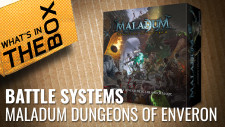





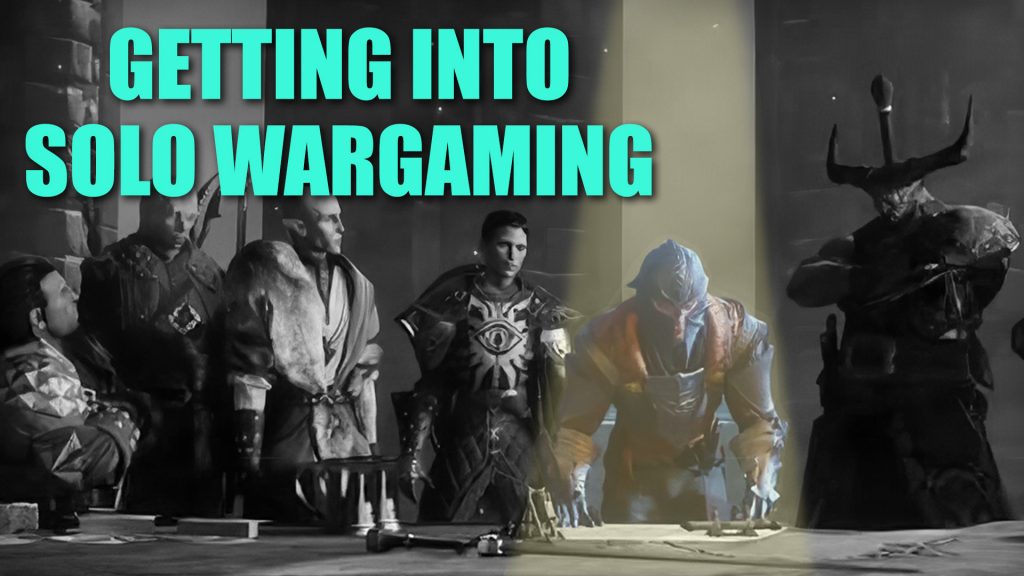
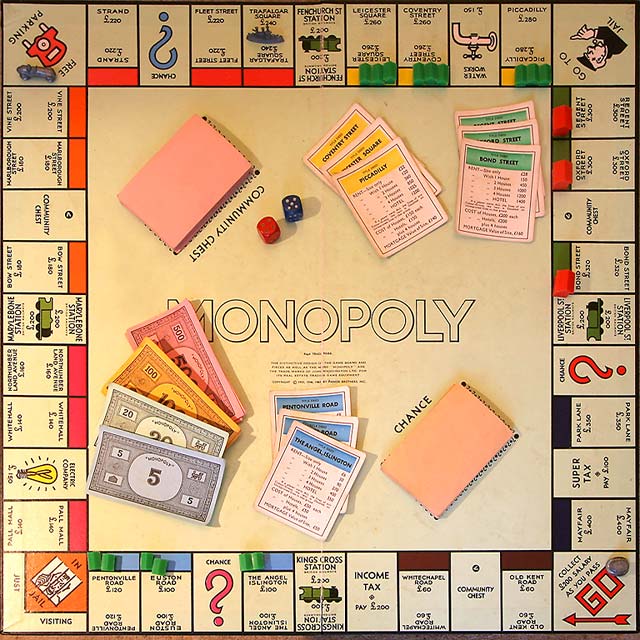
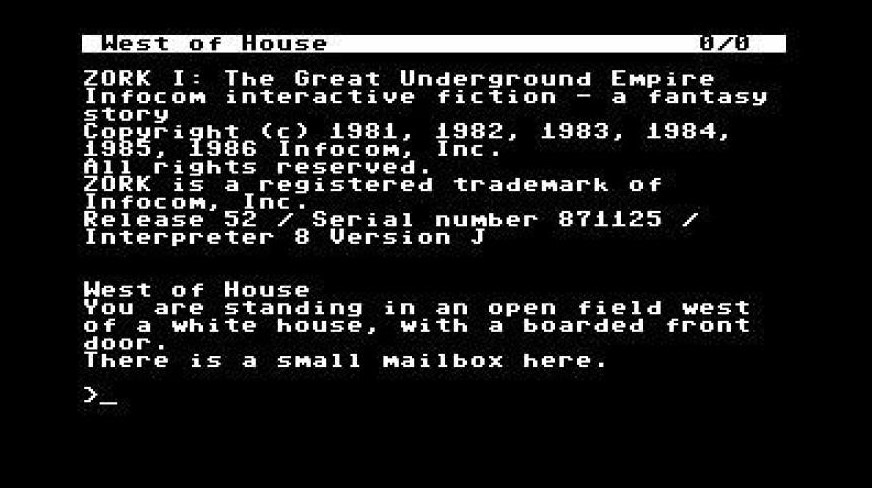
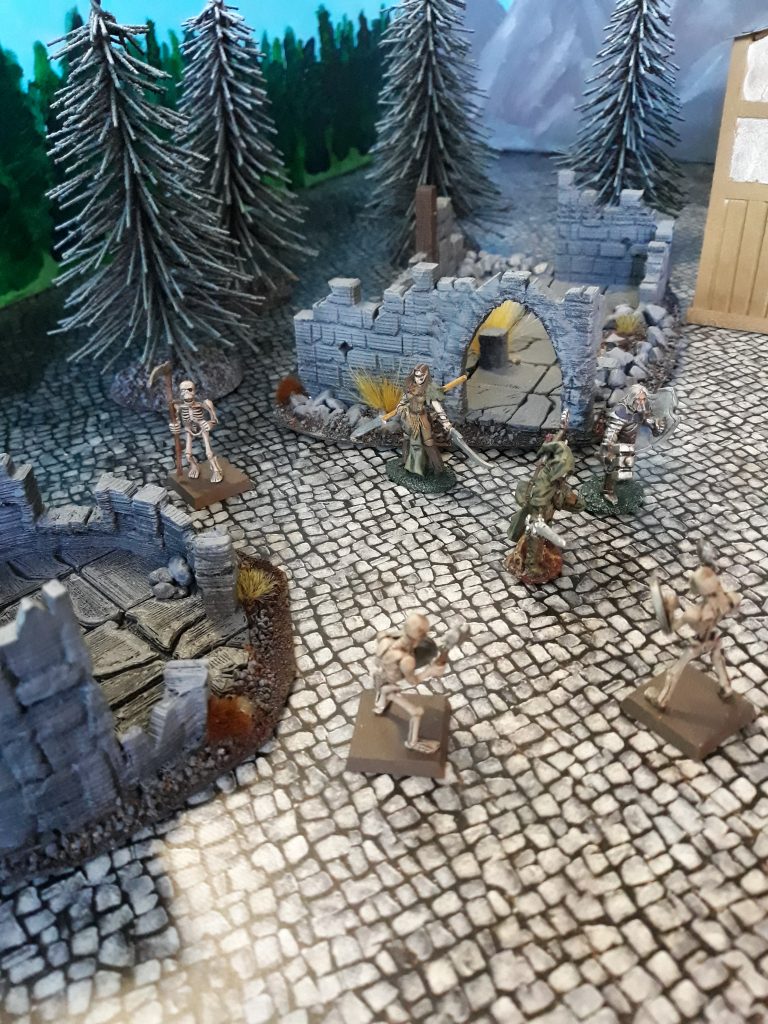
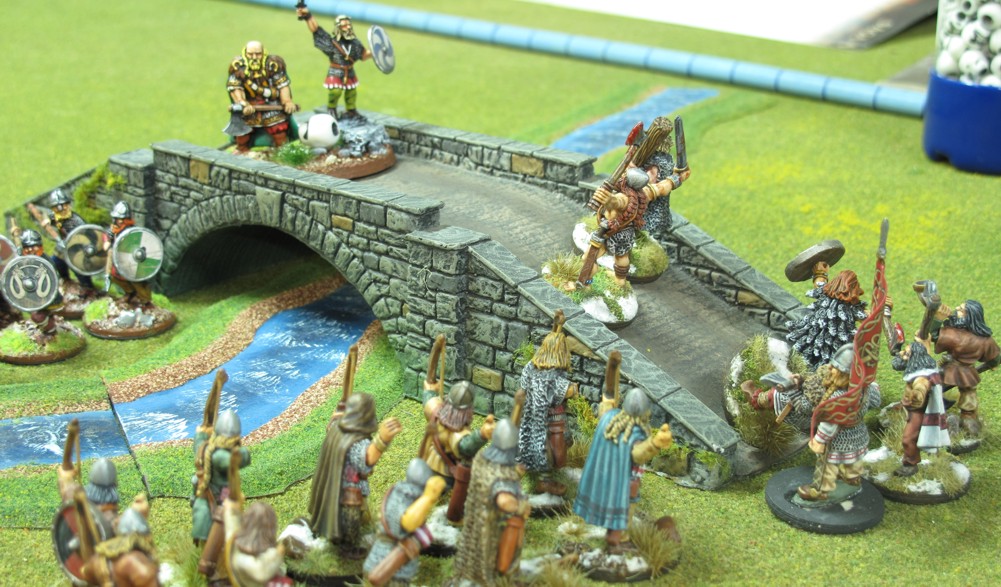

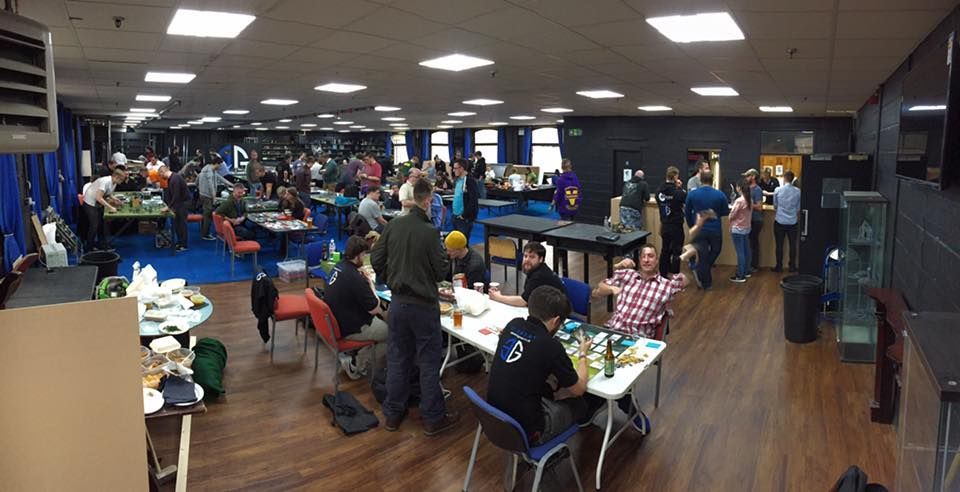


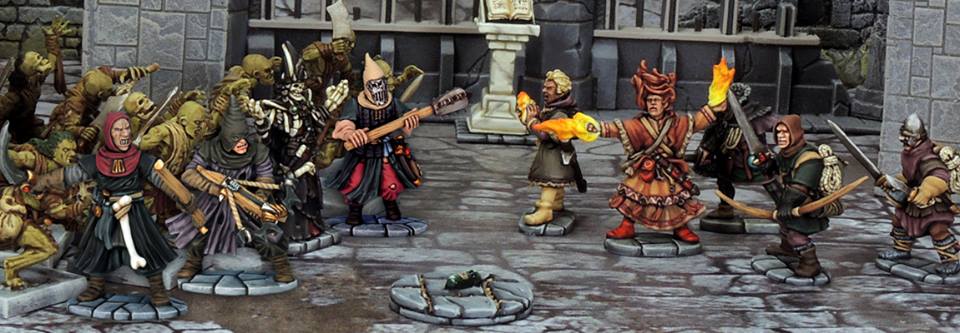
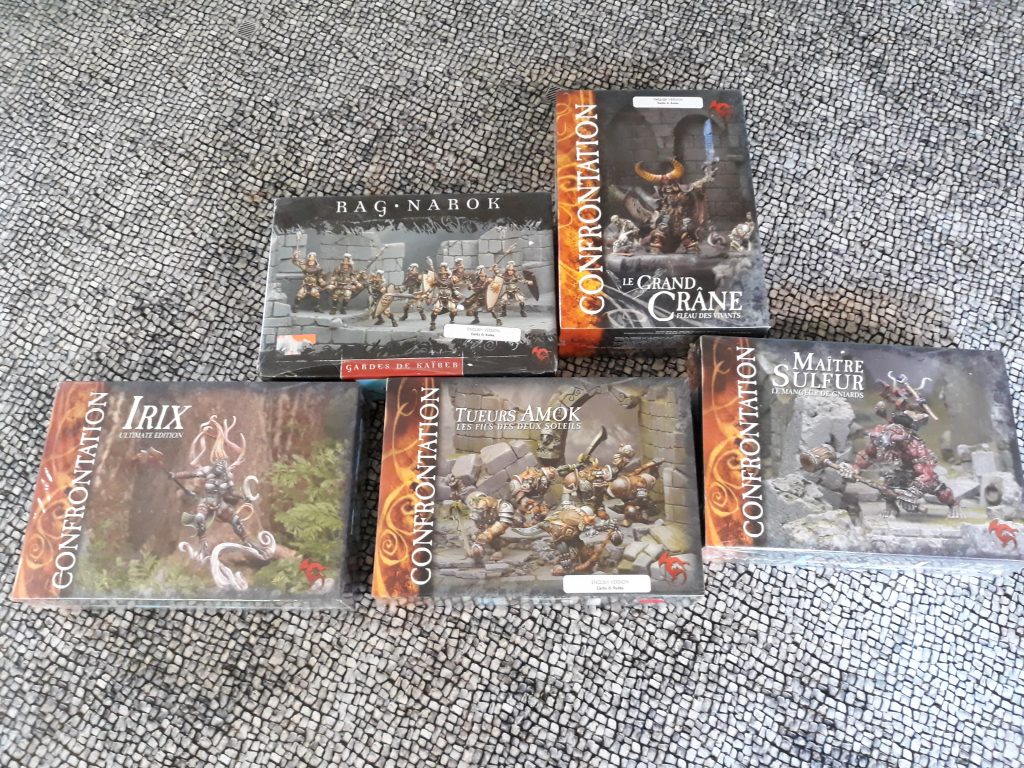
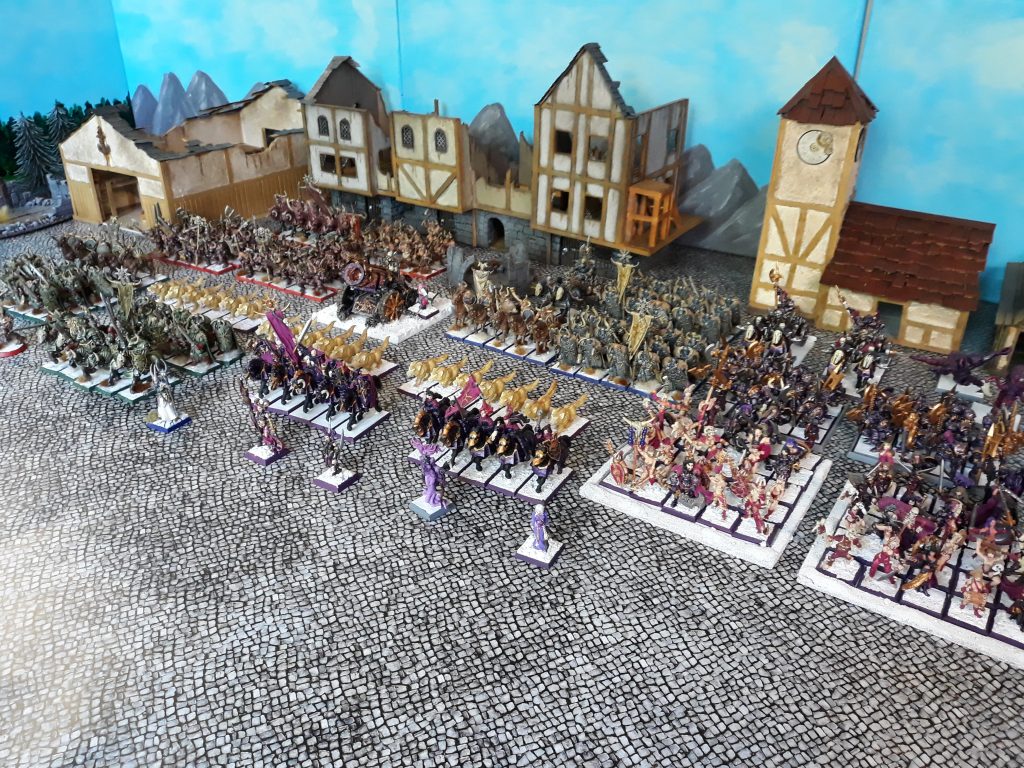
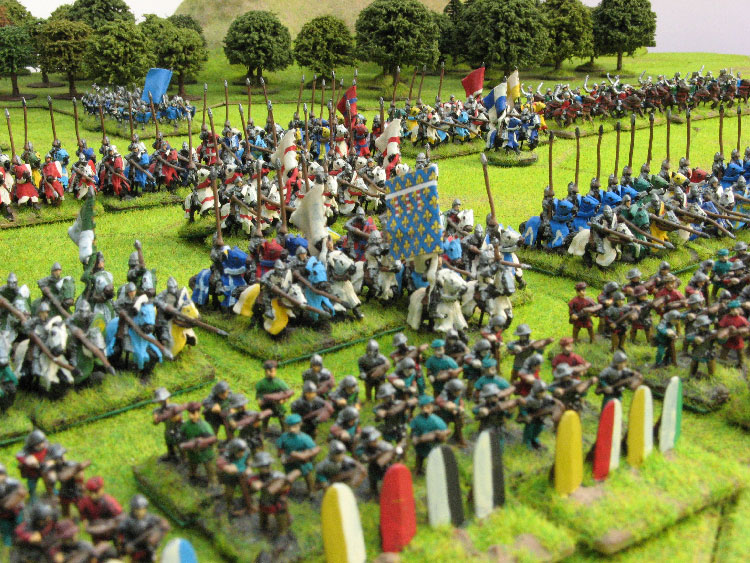






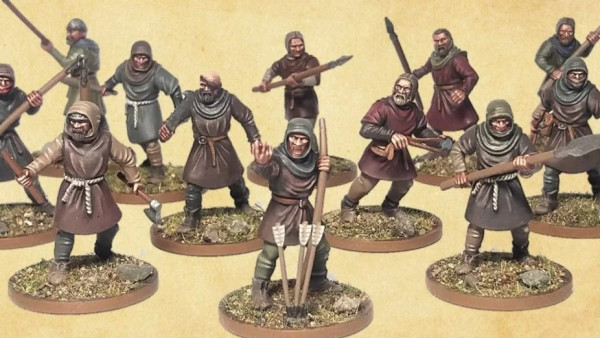





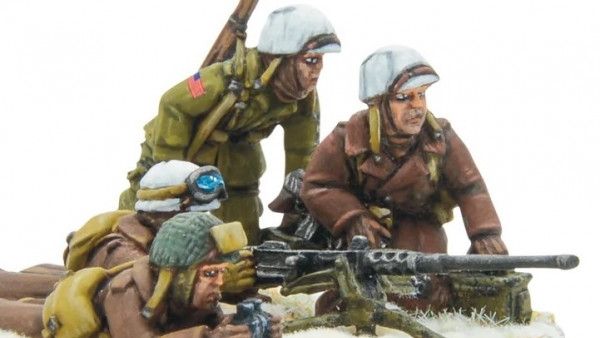
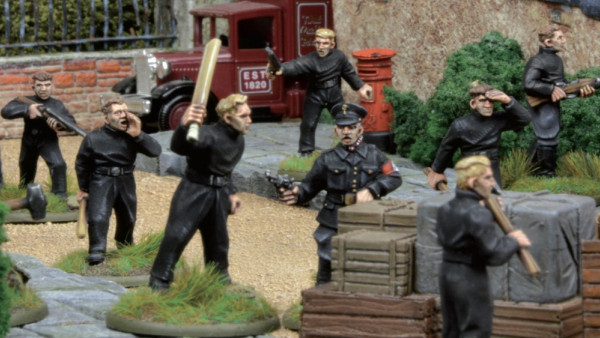



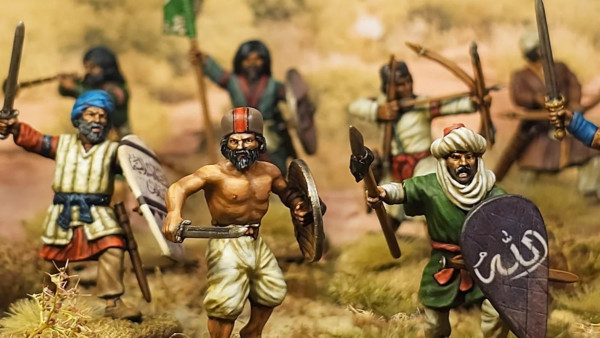




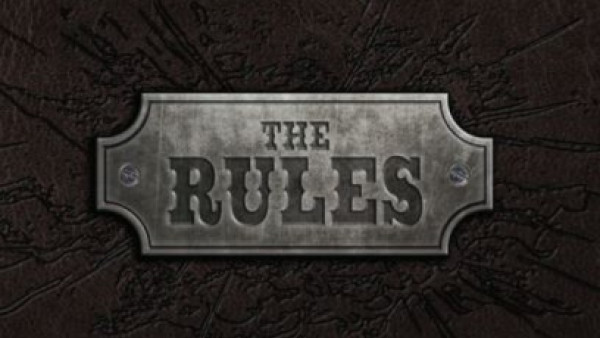
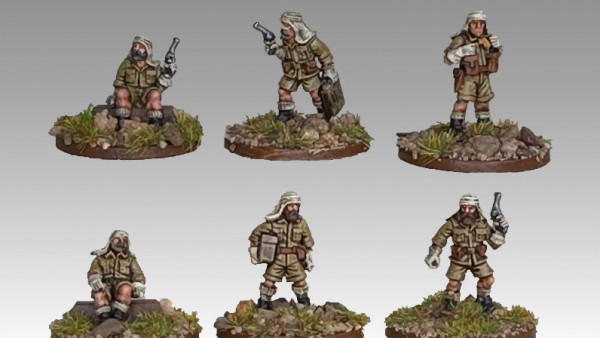



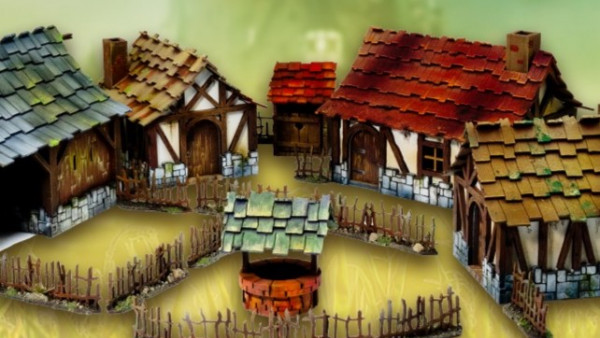
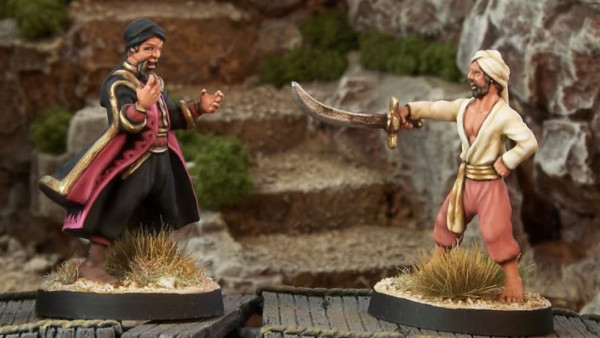
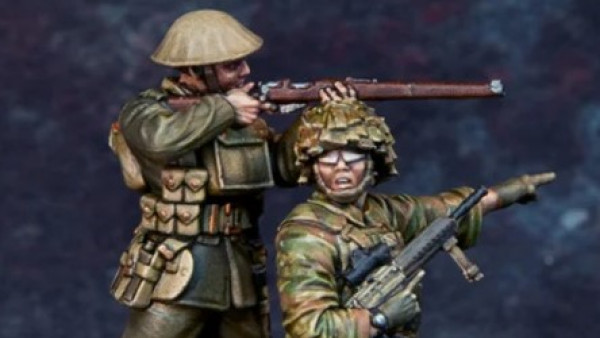

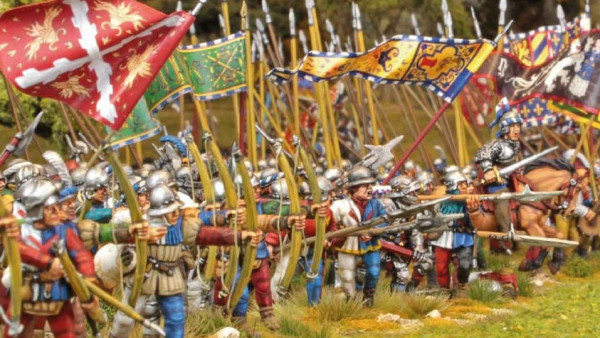


Solo Wargaming – finally! Thank you @evilstu for the excellent article.
After 14 years in the Hobby I am still waiting for Games Workshop to release a Solo Expansion ruleset for 40k and Fantasy…
Looking foward to Part 2.
@aztecjaguar you are most welcome. Glad it was well received. I’d like to extend a big thanks to the OTT team as well for assisting in the preparation and publication of this article series. in the absence of anything official from GW I would imagine it wouldn’t be too difficult to home brew some techniques to make solo WHFB work – I’ve actually used it as a test game for the principles involved in part 2 of this article series (writeup to follow…). 40k might be slightly more complicated due to the greater diversity in unit types, inclusion of transport… Read more »
My experience with solo wargaming is basically running a game that i may present at a convention and working out alot of the details before i get my club to try it out. This eliminates a lot of the cumbersome details that I most likely added to make the game before seeing how I could make it provide as realistic as possible without the tediousness of ( insert whatever here ). An example to illustrate, I did a game Falklands 82 and it was flying an Argentinian plane to bomb the Royal Navy. So, what did I need to show,… Read more »
@tacticalgenius thanks for sharing your insights. I agree you can never plan for every particular response but if you have mechanisms in place to cover the most likely outcomes then that’s going to take a lot of the pressure off when unanticipated tactical decisions do occur.
Wow, what a write up!
I feel as I get older I tend to gravitate more towards small model-count skirmish games and solo games. It’s a combination of not having the time to collect big armies like in 40k due to family/work commitments and just having more niche interests.
@doomrider you’re not alone. While I’m fortunate to have an active gaming community locally the windows of time where friends and I are simultaneously available for a game are regrettably occurring less and less often. If your focus is on narrative storytelling then small model count skirmish games are definitely fit for purpose.
With my meta shrinking over the past few years and threatening to become just me one day I’ve been considering the possibilities of solo wargaming. I’m really looking forward to you getting to the how paet of this. I’m also interested in the motivation side, beyond what is discussed above. Let me explain with an example: I’ve been considering Fallout: Wasteland Warfare for its single player aspect. The AI sounds really effective. I like that it lets you build your community between games and develop your team. So you play a game to get better I the next game, which… Read more »
@lawnor the actual ‘how to’ isn’t that complicated. In fact the idea is going to be pretty familiar to anyone who has played role playing games previously. Essentially it’s just a case of acting on the objectives and information available to the force you are controlling at that time, then moving on to the next force and acting based on their objectives and available information etc. You as the player are always going to know more than the commander of one of the forces, so you need to disregard that additional information when controlling that force. Part 2 goes over… Read more »
This doesnt always work for wargames though. When bluffing or using the threat of an action rather than the action itself are key parts of the game you cannot do that while controlling both sides as you always know your opponents intent. Your idea sounds like it comes from playing narrative games, which may work fine. Most of my gaming time has been spent on Warmachine, which foregoes that aspect and focuses on clean rules and balanced vs play where the bestter player wins. At least in theory anyway. No one has ever played it from the Commanders view point.… Read more »
valid point @lawnor some games are going to be more suited to solo play than others. And yes, bluffing and feints aren’t going to work as intended when you are already aware that the move is a feint. Of course you could introduce some form of dice or card mechanic to see if the opposing general takes the bait or senses the trap. Extreme example – Connect Four is never going to work as a solo game… To give a very broad generalisation, I think the less complex the wargame system, the more suited it may be to solo gameplay.… Read more »
Mantic Games Star Saga and Walking Dead, All Out War both have excellent solo play modes for when I can’t make a club night.
@redcrosspatch thanks for the tip! I knew Dungeon Saga had an AI deck add-on but wasn’t aware mantic had incorporated similar mechanics into some of their other games.
@evilstu : I think you nailed the reasons for going solo perfectl 🙂 I hope there is a list of good wargames for this sort of thing. Things that are on my list : – The Walking dead : All out war … ’cause zombies are dangerous on their own you can play this as solo or co-op. No need for a real opponent. – Tiger Leader / Sherman Leader / any ‘… Leader’ game from Dan Versen Games Probably more like a solo boardgame – Great Hall Burning ( http://rebelminis.com/grhabup.html ) It has basic rules and a lightweight roleplaying/campaign… Read more »
@limburger thanks for the list of solo gaming suggestions!
The main reason for me to play solo is the scandalous lack of fellow-gamers in the area where I live. I am allways looking for games that are specifically solo-friendly. So far I discovered Frostgrave and especially The Walking Dead: All Out War as the most exciting ones. And Hellboy, which is coming out this year I believe, has a solo mode as well, so I will try that, too. However, I like games like Bolt Action, Flames of War, Battlegroup, WH40k and more that are not particularly solo-friendly. To make them solo-playable you need a good AI of some… Read more »
Yes, absolutely, a good AI system for the opponent is what I am interested in for solo wargaming, whether it is cards, tables, dice or whatever.
I like the idea of not knowing the exact disposition of the enemy forces and their strategy or tactics. I would also not expect the opposing forces to be balanced, with plenty of “fog of war” events or unexpected changes during the game.
The Two Hour Wargames system has an integral solo system and uses a “Potential Forces” mechanic that has the actual nature and quantity of the enemy remain a mystery until the actual sighting of the force (be it nothing to 2x the size of your own forces). I’ve had a hard time getting my head around the system, but it’s been around for a long time and gone through several iterations.
@jemmy I really do like Frostgrave. I need to get round to trying out Ghost Arcipelago and playing a few rounds of rangers of Shadow Deep as well.
Hadn’t come across the solo wargaming with miniatures community that you mentioned – could be a handy resource for anyone looking to give this a go. Thanks for the pointer!
Thanks for the compliment 🙂 part 2 does touch on how to incorporate random elements into a solo wargame to make things more interesting to play so there may be some suggestions there that you can modify and incorporate?
Great article. Do you mention Charles Grant’s programmable wargame scenarios which is big help for solo Gaming Donald Featherstone wrote a good book on solo wargaming as well. If you can find a copy I would recommend Victory Games ‘, Ambush’ which is small scale solo WW2 boardgame
I consider ‘Donald Featherstone’ one of the leading authorities on Solo War Gaming. I’ve collected many of his works. Which have lead me to the work of other authors that he mentions.
Some authors have added to his work in an effort to update those books and keep them relevant.
@torros evidently my research was lacking (ok, just between us it was pretty much non-existent I’ll confess – I came at this from more of a ‘green fields’ approach…) so haven’t mentioned either in the later articles. Will have to follow up on your recommendations – I’m now really curious to find out how the topic has been approached and developed and what literature is available.
@evilstu check out DVG as well as they exclusively make solo wargames I believe. Solo wargaming seems to be more well known amongst the hex&counter crowd than the miniatures crowd, I did see a great thread on BGG about a guys solo adaptation on Warmachine a few years ago though.
Thanks for the tip @vikingrkevin As stated above I have more of a miniatures background so that’s how I approached things but really keen to see how other approaches work. And hex & counter has the advantage that you don’t have to do 3 months prep before you can start playing…
Great article, @evilstu – great to see some other contributors / writers on the site!
Cheers @oriskany
That is interesting article. It’s not often that people talk about solo wargaming so this article was nice surprise just because of that.
Thanks @mecha82 – to be honest a year ago it wasn’t something that I would have really considered but the more I thought it through the more the idea began to interest me. I’ve only had a couple of practice solo games (mainly to bed down some of the principes in the later articles) but it does put you in a very different mindset when you are working through a game.
The biggest problem I have with solo games is time… Set up can take up a while and if you have to put away again after (and they do tend to take up a lot of space) then you can end spending as time unboxing and boxing as gaming. Elder Sign is good board game for solo play, but the app based Elder Sign Omens has instant set up, so I tend to play that more often. Imperial Assault, Descent, Mansions of Madness all have app based solo/coop, but the more expansions you own, the more complex the map set… Read more »
@pagan8th I agree that playing digital equivalents of games is a lot quicker and easier, but I personally do like the tactile nature of gaming with miniatures or components (I’m probably showing my age here…). Thanks for the tips on the solo play apps for the games listed!
I enjoy the tactile aspect too (and I’m old too), but some games have such a big set up/put away time (Eldritch Horror for example) that you need to devote an afternoon, or evening, to the game and that’s not always an option. On the plus side… when the trumpocalypse arrives and/or an EM pulse shuts down every computer… board and RPG gamers will still have a hobby to fall back on… Plus we can laugh at the ‘social media junkies’ as they try to google ‘how do I make fire?’ or ‘how do I cook without a microwave?’… And… Read more »
Building up a tactile games stash in preparation for the inevitable zombie apocalypse – solid plan 🙂
I’ve bought many books over the years that deal with SOLO war gaming.
Great to see someone else talking about it.
My only reliable gaming sessions these days are solo games. Everything else is so hit and miss.
The benefit of a solo game is that I’m asured of a cenimatic game unlike when you play someone else you could end up with a person that throws everything out the window just to get the win.
For me it’s the journey not the end result.
(for the record, my wife and I still play tabletop games together.)
@templar007 I’m definitely with you as far as a preference for cinematic or narrative themed games. Sure, I could put together a list of abhorrently overpowered force multiplying combinations and try to beat an opponent over the head with it but I don’t personally find that style of gaming engaging (and fortunately neither do most of my regular opponents). I find narrative games end with the conclusion of a story whereas what I’ll broadly generalise (perhaps unfairly) as ‘tournament style’ games tend to just end up with an arithmetic totalling of arbitrary victory points accumulated. Great to hear that you… Read more »
I have yet to try solo gaming yet but this article is going to get me to try it. Great article!
Thanks @silverfox8 great to hear!
I’ve been looking forward to an article like this for a long time. Never had any friends who were gamers or lived anywhere near a gaming club. Great article looking forward to the next.
Cheers @gremlin if you decide to give something like this a go please let us know how you get on 🙂
This might be of interest
https://lonewarriorswa.com
Thanks for the link @torros! I’ve got something new to read at lunch today now. 🙂
Wow, thanks for sharing the link @torros
Thanks @evilstu for this excellent and very inspiring article, actually giving me a good nudge forward to test the solo-gaming waters. Living in the countryside and not having regular wargaming friends nearby, while working full time and raising a family makes “multiplayer”-wargaming in the big city quite a daunting prospect. Besides solo-friendly tabletop games waiting on my gaming shelf (especially Rangers of Shadow Deep and Kingdom Death) I am intrigued to try out some wargames, such as 40k or AoS. Being able to play the narrative scenarios in my head and/or gaming to the best of my ability could be… Read more »
Good to hear @golonka and if you do decide to give it a go please do consider using the projects system and step us through your approach.
Great topic, nice article. As well as the great Donald Featherstone solo wargames book, you should try and get hold of Stuart Asquith Solo Wargames which was written for Military Modelling I think! I bought it way back in the mists of time ans I still use some of the ideas now
I looked up the Stuart Asquith Solo Wargames book and found it running between $60 and $120. Must be a heckuva book!
Its probably just well out of print
Thanks for the tips @Mike Peters
Great article and I look forward to the rest of the series. We moved cross country a couple of years ago and are an inconvenient distance from any gaming scene where for years before it was only a 5 minute drive away. My son is off at university now which also tempers my desire to go out of my way to game.
I’ve been looking at solo games more – Core Space and Reichbusters being recent examples. I’ve also been thinking of ways to make use of my existing traditional collection. This article series is very timely for inspiration. Thanks!
@dominator sorry to hear that you are now some distance from your former gaming community. If you do find yourself repurposing your existing collection please let us know how you went about it and what your thoughts on the experience were. Any tips for the community would doubtless be greatly appreciated.
Love the article. I’ve only recently come to wargames from RPGs. Unfortunately, my time is tighter than a gnat’s butt wrapped around a fire hydrant, so solo is pretty much the only way that I can get in any play time. I’m curious as to the group’s thoughts regarding solo skirmish games vs. platoon and high level games. Can the same rules be applied or do they require a different approach?
Thanks @neal5x5 – I’m still trying to work my brain around your metaphor…. Anyhow… I’ll have to confess to not having a great deal of experience in this field at the time of writing (I’m hoping to codify some sort of basic rules set and run a test campaign to see how things work) but I don’t think the principles would vary too much with the shift in tactical level. You would have the same shift in focus that you usually would when zeroing down to a skirmish level (ie every model is an individual and is of great import)… Read more »
I’m a big solo fan, and am particularly enjoying Fallout Wasteland Warfare at the moment. The AI system is very clever, and I think it could probably be adapted to work for any 2 player skirmish game. For example, you could just use the Super Mutant AI cards and play 40k/Kill Team Orcs with them. I too have the set up / put away problem. For example I’ve played my solo wargames when I’ve left everything set up after a 2 player game. It gives me a good excuse not to put the stuff away immediately, and makes it easy… Read more »
@Dan sounds like a sensible strategy. At least with all the games with 1 player options on the market now you will have plenty to choose from I’d imagine. Had forgotten that Human Interface had a one player mode, thanks for the reminder 🙂
As people get more and more responsibilities it gets harder to arrange games (we’re sorting out the last round of our Dreadball league and I’ll be surprised if we can all get together any time in the next two months).
I’ve picked up Rangers of Shadow Deep and it’ll drive a lot of my hobby activity in the next few months. Excellent article @evilstu!
Thanks @somegeezer I know the feeling – sometimes trying to organise half a dozen people for a gaming session can feel like herding cats (without a thermal lead no less!). Best of luck getting in a conclusion to your Dreadball season, and hope Rangers proves to be as much fun as it looks.
Cheers man. It used to be so much easier when we all had nothing better to do 😀
Glad to see solo gaming at last being covered, big fan of solo gaming due to family and work commitments,play bolt action solo using platoon forward from twofatlardies and now bolt action do a solo scenario even better have a few Tom Featherstone books also on solo gaming but look forward to your next article.
Thanks @ironshield sounds like you are quite familiar with the processes involved. If there are any obvious gaps in the later articles would be grateful if you could drop your thoughts in the comments with regard to anything that may have been missed 🙂
Very interesting post. I´m generally the one to teach the new game to others…so, these idea is great to learn the mechanic of how the game works.
While boardgames like descent or manssion of madness have an app that allow you to a more competitive “solo experience”…I like to know more on how to do something like that to make a solo wargaming “match” more competitive.
Thanks @Alejandro and on behalf of gamers everywhere, thanks for being one of those selfless individuals who learns the rules first hand so that they can teach the rest of the community!
Great overview of reasons for looking at solo gaming. I have been drifting into solo gaming. I started doing more cooperative games and was running a few solo games to learn the rules and decided solo has a charm of it’s own. I have been doing Rangers of Shadowdeep solo and it seems like a good system for it. I have found games that are more in your face (how will you deal with this ambush) and without of a lot grinding to make it through are more compelling for me when I play a game solo. I have Gloomhaven… Read more »
Thanks @vantorn yes the first couple of goes it feels familiar and yet very different – almost like driving a car on the wrong side of the road I guess. you know what’s going on but have to focus and it really does give your brain a bit of a workout. definitely agree with you that ‘rules light’ systems tend to lend themselves more to solo gameplay.
Great article. Thanks a lot for sharing. Personally I have been thinking about trying out solo wargaming for some time (for the reasons you mention). This article was very helpful.
Thanks @Teis hope you get the opportunity to try it out at some stage.